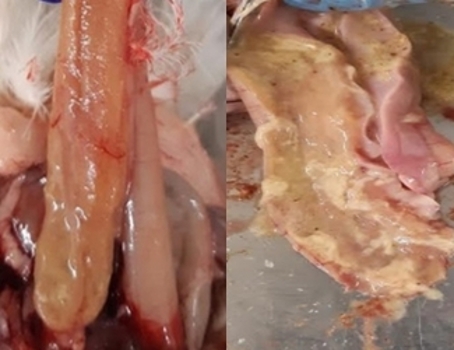What is Necrotic Enteritis?
Necrotic enteritis (NE) is an economically important intestinal disease in broiler chickens. The incidence of NE is increasing due to decreased use of preventative antibiotics in the feed, and will be more of an issue now that BMD (category II antibiotic) for example, cannot be used for the prevention of NE.
NE is caused by a bacteria, Clostridium perfringens (CP), which lives in the intestines. Not only does it live in the intestines, it also produces toxins. These toxins kill the tissue of the intestines resulting in bird mortality. Additionally, it is the toxins that determine how severe the disease is and broilers are generally already immunosuppressed by variant infectious bursal disease (vIBDV) or coccidia.
To control NE, broiler breeders may be vaccinated, which passes maternal antibodies (MtAb) to the broilers. Although, these MtAb decline in levels rapidly and are only effective for 2 to 3 weeks, hence why NE is usually seen in birds after this age. Broiler vaccines are good alternatives to control NE. Research from other institutions studied vaccines made from the inactivated toxins (called toxoids) from different strains of CP. However to complicate matters, it was also discovered that not all CP isolated from field cases of NE had toxins associated with them.
Our Research

In order to develop a vaccine against NE, the first stage of the project is to develop an animal model which includes suppressing the immune system of commercial broilers with vIBDV, then challenging them with different isolates of CP we collected from field cases of NE. After the challenge, we evaluated clinical signs, mortality, lesions (if any) in the intestines and the immune cells.
Therefore, the objectives of our project are:
-
Characterize CP isolates
-
Develop an animal model
-
Study the immune cells involved in cases of NE
-
Vaccine development

